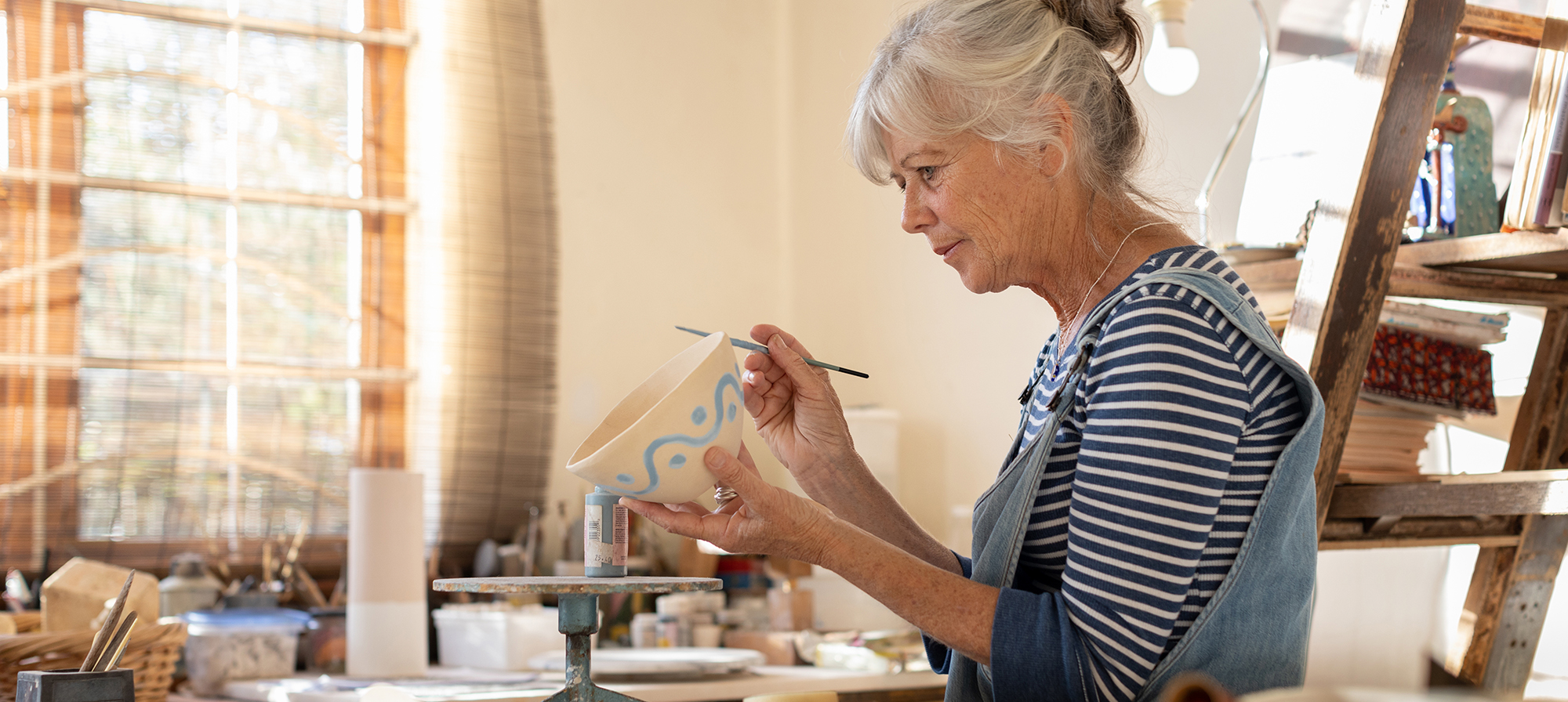You may have heard of, or even had experience with, a birthing doula—a specially trained person who helps guide mothers through the process of childbirth.
But what about at the other end of life's journey? When you or a loved one is approaching death? Who can help you and your family navigate this often-difficult transition? An end-of-life doula may be the person who can help.
Understanding the role of an end-of-life doula
Sometimes called a “death doula” or a “dying companion,” these trained professionals provide compassionate, nonmedical caregiving services and help support and guide a dying person and their family before, during, and after the dying process.
Doulas often coordinate with hospice care doctors, nurses, social workers, and chaplains. This allows these various caregivers to work together in a coordinated, informed, and sensitive way.
Loren Talbot, a certified end-of-life doula, is also the director of communications with the International End-of-Life Doula Association (INELDA ). She spoke with us about some of the important ways an end-of-life doula can help families, as well as how the role of caring for a dying person has changed over time.
“Historically, people usually died in their home with family near to help. In religious communities, there would have been someone from the church or temple that did this role [of a doula]—or perhaps a village elder. In many ways, a ‘death doula’ is a relatively new term, but the work itself is not new. As long as humans have accompanied other humans at the end of life, this kind of role has existed.”
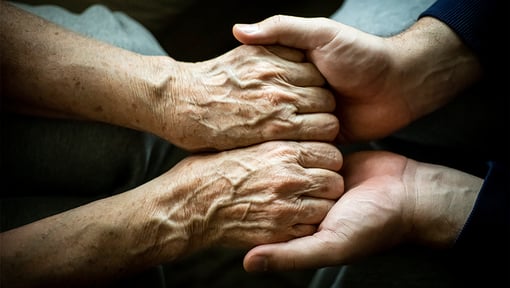
How does the work of an end-of-life doula differ from hospice care?
Today, it’s not uncommon for someone with a terminal illness to transition to hospice care. The patient simply may not have the support they need to stay in their home. Hospice services can also provide support to patients who reside in skilled nursing or memory care facilities or who have chosen to stay in their home and receive care there.
End-of-life doulas often work with hospice care professionals to provide support services for a patient near the end of life. Both work to enhance the quality of life for patients as much as they can, while also providing support for their families. But they do play different roles.
A patient may enter hospice care when curative treatments are no longer an option. Hospice care is a medical service that focuses on end-of-life care or on supportive (palliative) care leading up to the end of life. This type of care is not meant to improve or slow an illness, but rather to manage pain symptoms and improve a patient’s quality of life as best they can.
Hospice care can be offered in the home, as well as nursing homes, hospitals, or solely focused hospice centers.
End-of-life doulas offer non-medical, holistic support that complements and extends beyond the care provided by hospice.
Talbot elaborates on some of the different services. “Hospice—while it is so amazing—often doesn’t always allow for the same amount of time that a doula can spend with somebody. Depending on the arrangement, a doula can provide many other practical services.”
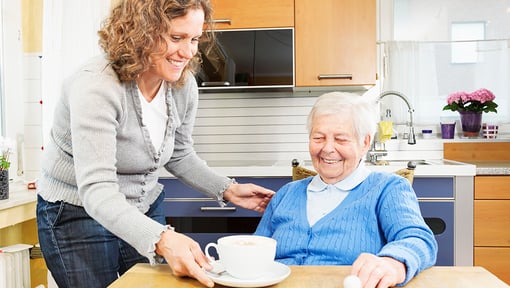
Services a doula may provide
- Emotional support. Someone nearing the end of life may be flooded with overpowering emotions. A doula will be there to talk with the patient about death and what can be expected. They’ll provide a non-judgmental ear and an empathetic presence. This can help validate these strong emotions.
- Preservation of their legacy. Doulas often help put together remembrance or legacy projects. This might include recording life stories and memories, writing letters, or any other project they may have in mind.
- End-of-life planning. Doulas assist with end-of-life decisions, including helping to prepare advanced care planning, funeral preferences, or other legal matters.
- Spiritual or religious guidance. End-of-life doulas make it a priority to respect and honor the spiritual practices of all involved. Doulas are trained to be welcoming of all religious practices and beliefs, and will ensure that proper spiritual or religious rituals and ceremonies are carried out with complete dignity.
- Family and caregiver assistance. Doulas don’t just work with patients. Providing support for family members can be just as important. Doulas can help families and loved ones better understand the dying process and what to expect. Doulas will also provide respite to caregivers, allowing them a break to tend to their own well-being.
- Everyday logistical needs. While not every doula may do this, many may help run errands or assist with other household needs.
- Companionship. Not everyone may have family or loved ones to be by their side when they are nearing the end. A doula can offer the comfort of their presence.
- Memorial or funeral services arrangements. Helping to plan the logistical details of the memorial service and funeral can take much of the burden away from the family.
End-of-life doulas can provide these services and more. Often, even if a certain request cannot be fulfilled, doulas can help connect patients and families to the right people.
As Talbot says, “I think it’s really about hearing what their needs are and recognizing that person’s needs and how they want to integrate it. The vision and the support that we provide is as big as the individual is asking for. We are there to help that person fulfill their wishes. We address those needs in whatever way is suitable.”
Talbot also pointed out that doulas don’t only work with hospice care centers. Whether it’s in a hospice setting, a hospital, or at home, doulas will serve their clients and/or patients where they are needed most.
 At what stage should you seek out an end-of-life doula?
At what stage should you seek out an end-of-life doula?
Although “end-of-life” is in these caregivers’ title, people often choose to work with an end-of-life doula at all different stages of life. And even though many doulas use the term “death doula” and “end-of-life doula” synonymously, Talbot notes that INELDA prefers to use the latter term.
“One of the reasons why we, as an organization, use ‘end-of-life’ is because it helps plan for the end of life as much as it does prepare somebody for death itself. And so, there are people who end up utilizing an end-of-life doula at different periods of their life. I know people in their 40s who want to do an end-of-life plan just in case something happens.”
Talbot states that many people hear about end-of-life doulas and reach out when they are first diagnosed with an illness. Perhaps they don’t have a will or trust, and they need help getting this paperwork in order. While a doula may not be able to fulfill the legal side of such a request, they can connect the patient with someone who can take away some of the burden of that stress.
But then others may not even know the term ‘doula’ until they are in a hospice setting. And maybe not even then. Not every hospice center works with doulas. Be sure to inquire. It’s at this stage that a doula will provide as much support as possible in any way needed.
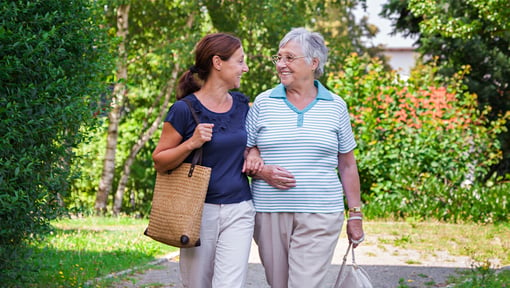
How to find an end-of-life doula
As noted, end-of-life doulas often work hand-in-hand with hospice care centers. This is the most common way people learn about the compassionate work of an end-of-life doula. But that’s certainly not the only way to contact an end-of-life doula.
There are several organizations that can provide these services. Doulas associated with the groups listed here have extensive end-of-life training and certification, meaning you’re certain to receive the best care possible:
- The International End-of-Life Doula Association (INELDA ) INELDA.org provides a directory of doulas across the United States as well as 35 other countries around the world.
- The National End-of-Life Doula Alliance (NEDA ) also provides a large directory of certified end-of-life doulas.
Take this opportunity to research, interview, and chat with as many doulas as you feel necessary. It’s important to work with someone that you and your family feel completely comfortable with and who can best suit your needs.
Few people may be fully prepared for the decisions that need to be made during this emotional and often stressful time. For many, it is a tough subject to even contemplate. Feelings of regret, longing, fears, or vulnerability can be hard emotions to put into words.
But as hard as it can be to face the end of life, working with a doula can help you and your family come to a place of acceptance and peace. The end of life is something that we will all experience, so preparing for it can be a comforting and meaningful way of letting go.
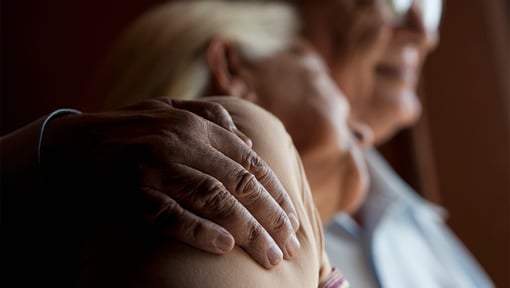
Not a Silver&Fit® member? Learn more about everything the program has to offer, including more helpful healthy living tips like this, here on our website.
This information is not intended to take the place of regular medical care or advice. Please check with your doctor before using this information or beginning any self-care program. Images used for this article do not depict Loren Talbot nor any members of the Silver&Fit Program.
References
Krawczyk, M., & Rush, M. (2020). Describing the end-of-life doula role and practices of care: perspectives from four countries. Palliative Care and Social Practice, 14, 2632352420973226. https://doi.org/10.1177/2632352420973226
Powell S. K. (2022). End-of-life doulas. Professional Case Management, 28(1), 1–2. https://doi.org/10.1097/NCM.0000000000000616
National Institute of Health, National Institute on Aging. (2021, May 14). What are palliative care and hospice care? https://www.nia.nih.gov/health/hospice-and-palliative-care/what-are-palliative-care-and-hospice-care#hospice
Rawlings, D., Van Dinther, K., Miller-Lewis, L., Tieman, J., & Swetenham, K. (2023). Experiences of engaging a death doula: qualitative interviews with bereaved family members. Palliative Care and Social Practice, 17, 26323524231207112. https://doi.org/10.1177/26323524231207112
Rawlings, D., Miller-Lewis, L., Tieman, J., & Swetenham, K. (2023). Death doula working practices and models of care: The views of death doula training organisations. BMC Palliative Care, 22(1), 78. https://doi.org/10.1186/s12904-023-01200-w
This article was written by Jason Nielsen, edited by Kimberley Reynolds, and clinically reviewed by Elizabeth Thompson, MPH, RD on February 9, 2024



